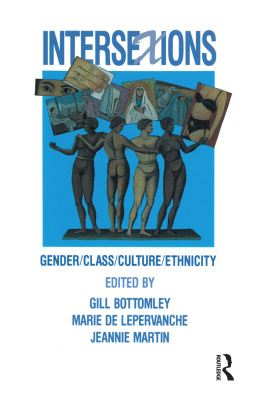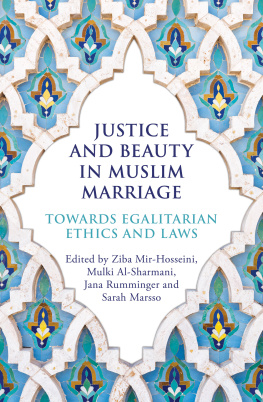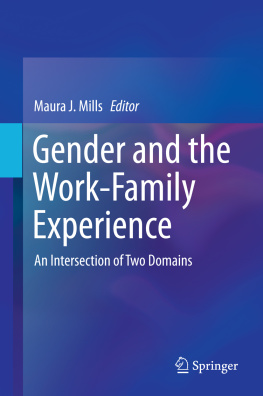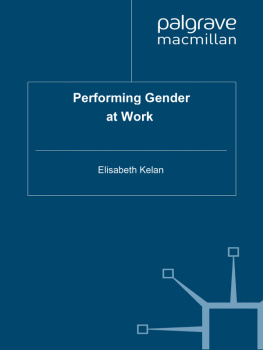
First published 2000 by Ashgate Publishing
Reissued 2018 by Routledge
2 Park Square, Milton Park, Abingdon, Oxon OX14 4RN
711 Third Avenue, New York, NY 10017, USA
Routledge is an imprint of the Taylor & Francis Group, an informa business
Copyright Colin Creighton and C.K. Omari 2000
All rights reserved. No part of this book may be reprinted or reproduced or utilised in any form or by any electronic, mechanical, or other means, now known or hereafter invented, including photocopying and recording, or in any information storage or retrieval system, without permission in writing from the publishers.
Notice:
Product or corporate names may be trademarks or registered trademarks, and are used only for identification and explanation without intent to infringe.
Publishers Note
The publisher has gone to great lengths to ensure the quality of this reprint but points out that some imperfections in the original copies may be apparent.
Disclaimer
The publisher has made every effort to trace copyright holders and welcomes correspondence from those they have been unable to contact.
A Library of Congress record exists under LC control number: 00135332
ISBN 13: 978-1-138-72908-7 (hbk)
ISBN 13: 978-1-315-19009-9 (ebk)
Contents
Colin Creighton and C.K. Omari
John Campbell
Pat Caplan
Colin Creighton
Eleanor Fisher
James L. Giblin
Dorothy L. Hodgson
S.M. Kapunda
Bertha Koda
Anne S. Lewinson
C.K. Omari and D.A.S. Mbilinyi
Alison Tierney
Els Upperman
John Campbell teaches anthropology at the University of Wales, Swansea and is also a Research Associate in the Centre for Development Studies there
Pat Caplan is Director of the Institute of Commonwealth Studies and Professor of Social Anthropology
Colin Creighton is a Lecturer in Sociology in the Department of Sociology and Anthropology at the University of Hull
Eleanor Fisher is a Research Officer in the Centre for Development Studies, School of Social Science and International Development, University of Wales, Swansea
James L. Giblin is an Associate Professor of History at the University of Iowa
Dorothy L. Hodgson is an Assistant Professor in the Department of Anthropology at Rutgers University in New Jersey, USA
S.M. Kapunda is Senior Lecturer in the Economics Department at the University of Dar es Salaam
Bertha Koda is Senior Lecturer and Researcher in the Institute of Development Studies at the University of Dar es Salaam
Anne S. Lewinson lectures at the University of Wisconsin-Madison
D.A.S. Mbilinyi is Principal Curriculum Developer at the Tanzania Institute of Curriculum Development
C.K. Omari is Professor of Sociology in the Sociology Department at the University of Dar es Salaam
Alison Tierney is a freelance social development consultant based in Brighton and previously had a post at the Institute of Developing Studies at the University of Sussex
Els Upperman worked in Africa for eight years in rural development and is now working in The Netherlands
This book was produced under the auspices of the academic link between the Department of Sociology of the University of Dar es Salaam and the Department of Sociology and Anthropology of the University of Hull. This link, which has now come to an end, was for many years supported by the British Council. The editors are grateful for the overall assistance of the Council and its staff as well as for specific financial help towards costs of travelling and typing in connection with this volume. Gender, Family and Work in Tanzania is the sixth volume published by Ashgate arising from the link. The other volumes are Capitalism, Socialism and the Development Crisis in Tanzania (1990), edited by Norman ONeill and Kemal Mustafa; The Tanzanian Peasantry: Economy in Crisis (1992) edited by Peter G. Forster and Sam Maghimbi; Gender, Family and Household in Tanzania (1995) edited by Colin Creighton and C.K. Omari; and The Tanzanian Peasantry: Further Studies (1995) and Agrarian Economy, State and Society in Contemporary Tanzania (1999) both edited by Peter G. Forster and Sam Maghimbi.
The editors also wish to thank Stella Ryan who typed the final version of the text.
Colin Creighton and C.K. Omari
This book is a successor to Gender, Family and Household in Tanzania (1995) and, like the earlier volume, seeks to further our understanding of family and gender relations in Tanzania. The previous volume focused strongly upon the structure and workings of households, the relationships between household organization and gender relations, and the effects of economic crisis and restructuring upon households and upon the position of women. The present volume has a wider scope and covers, amongst other issues, men and masculinity, gender relations among professionals, the position of children, the changing nature of marriage, the organization of work, the influence of law and the evolution of the urban framework. These are all matters on which comparatively little work has been carried out hitherto in Tanzania. Several papers also contribute to the necessary task of providing a deeper understanding of the history of family and gender relations in Tanzania. Finally, these papers are linked by a common concern with methods of male control and the attempts of women to evade or resist these.
The chapter by C.K. Omari and D.A.S. Mbilinyi provides statistical evidence of the continuing marginalization of women in Tanzanian society. Girls continue to be seriously disadvantaged in education, even though their rate of enrolment in primary schools now almost equals that of boys. The proportion of females drops significantly in secondary education, despite a considerable improvement in their relative numbers between 1981 and 1995, and the fall is particularly marked at the higher levels. Their representation is even lower in tertiary education. The problem, moreover, is not one of numbers alone. Subject choices are strongly differentiated by gender, few girls follow courses in science and mathematics and very few enrol in technical schools. Most girls train for service-oriented jobs such as nursing, teaching and secretarial work. Altogether, the educational system does far too little to offset the deep-rooted patterns of socialisation which create strong patterns of gender differentiation and deference to men.
The lack of access to technology is particularly significant for not only does it affect the employment prospects of individuals, but it means that women will have little ability to influence the ways in which technology is used. This is one example of womens overall lack of power in the wider society. Omari and Mbilinyi document their continuing weakness in public life by presenting figures for their low levels of representation as Members of Parliament, Government Ministers, high-ranking civil servants at district and regional level, and in the judiciary.
In the literature on development there has been considerable discussion of the implications of the growth in the numbers of female-headed households for the welfare of women and children (Chant, 1985; Guyer, 1988; Appleton, 1996; Varley, 1996). S. M. Kapunda explores this issue through the analysis of statistical data from the 1991/92 National Household Budget Survey. He found that expenditure on food, as a proportion of total expenditure, was higher in female than in male-headed households. Applying Engels Law, this would seem to indicate that female-headed households are in greater poverty. When food consumption in female-headed households is calculated as a proportion of that in male-headed households, it transpires that it is lower on all of seven food items, in both urban and rural locations, with the exception of consumption of vegetables and meat in Dar es Salaam. Differences between Dar es Salaam, municipals, other urban centres, and rural locations are marked, both overall and across individual items.






